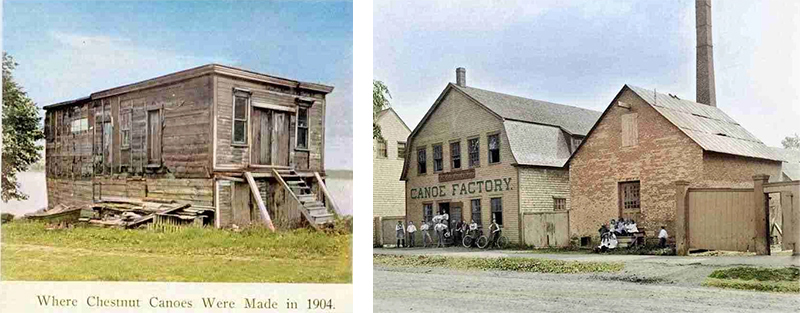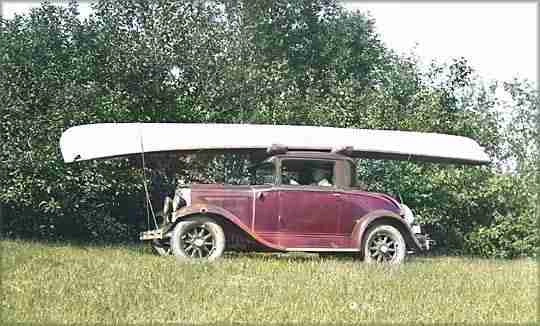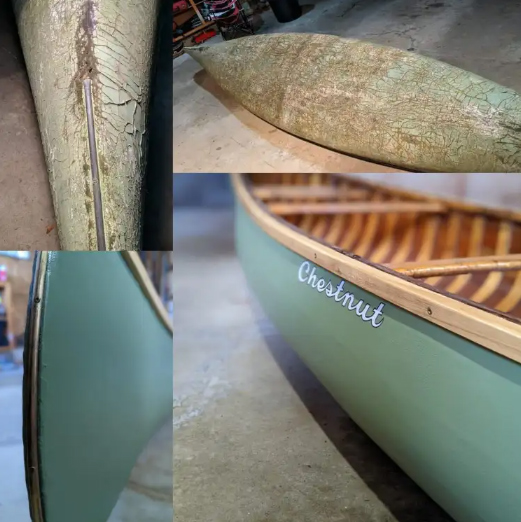Account Login
Don't have an account? Create One

Crafted by hand, Chestnut canoes were built to last. Although the New Brunswick-based business with over a century of history is no longer in operation, Chestnut products continue to float above the test of time.
Diving in
The Chestnut family has a history of selling canoes in Fredericton, New Brunswick that dates back to the late 1890s. When brothers William and Henry Chestnut inherited their family’s hardware business, they noticed a rising demand for canvas canoes in the area. Rather than import canoes from the U.S., the brothers hired a craftsman to build a canoe inspired by B.N. Morris canoes (a popular brand from Maine). This was the beginning of the Chestnut Canoe Company in 1904.
As business picked up, the brothers travelled to Maine to recruit boatbuilders to the province and filed a patent for building wood and canvas canoes. In 1905, the Chestnut family received their patent and officially incorporated Chestnut Canoe Company, Ltd. in 1907.

Paddling forward
Over time, Chestnut Canoe Company merged with competitor Peterborough Canoe Company under the holding company of Canadian Watercraft Limited. Canadian Canoe Company also joined the merger years later. While operations for each business remained independent, it’s believed that Chestnut was responsible for producing all canvas canoes sold by each party.
Chestnut Canoe Company’s factory eventually became the largest of its kind in the British Empire. By 1914, annual production had reached 1,200 canoes and they began producing other products like snowshoes. Importantly, Chestnut maintained their reputation for quality, making each canoe by hand with cedar, ash and stretched canvas.

Changing tides
The business moved to a new factory in Oromocto, N.B. in 1974 and tried to expand its product line to include motorboats and canoes made from fibreglass. Norman Betts, a lifelong fan of Chestnut canoes, believes this led to the company’s downfall. “They took on too much and were spread too thin.”
In 1979, Chestnut Canoe Company made their last canoes and closed up shop.

Still floating
Today, many beloved Chestnut canoes remain in use. Norman Betts at Miramichi Canoes is a canoe builder himself, however, his main business is restoration. Norman has restored many Chestnut canoes over the years, some about 100 years old. “I’ve always been a Chestnut fan. Many people come to me with their grandparents’ old canoes that were stored in their shed. Canvas will need the most work, but Chestnut canoes were made with quality craftsmanship, using local materials and value-added wood products.”
Betts is happy to help maintain Chestnut’s legacy. “I’m glad that I’m doing what I can to keep the memory of Chestnut alive. Restoration is all about the story. Everyone loves sharing their memories of paddling with their grandfather or fishing with their family. So, we bring back heirloom canoes to be appreciated for as long as people want to look after them.”
Paddling strong, 118 years later.
Comment policy
Comments are moderated to ensure thoughtful and respectful conversations. First and last names will appear with each submission; anonymous comments and pseudonyms will not be permitted.
By submitting a comment, you accept that Atlantic Business Magazine has the right to reproduce and publish that comment in whole or in part, in any manner it chooses. Publication of a comment does not constitute endorsement of that comment. We reserve the right to close comments at any time.
Cancel
I have a 1971 Chestnut 16 ft fibreglass canoe in need of the nose ends or end caps for each end. Would you be able to advise as where I could get something at least close to originals? Thank you in advance . I live in Spruce Grove Alberta.
Brian Larsen
[email protected]